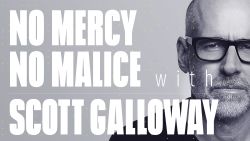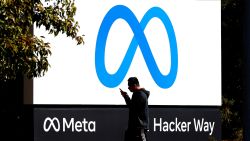The Senate Intelligence Committee is set to release two reports on Monday detailing the breadth of the Russian social media campaign to sow discord in the United States.
The reports, both of which were commissioned by the committee, are based on troves of data that Facebook, Twitter, and Google handed over to the committee about the Russian campaign to influence the 2016 U.S. presidential election and American politics generally. Much of the data has not previously been disclosed publicly.
Researchers analyzed more than 10 million tweets, 116,000 Instagram posts, 61,000 Facebook posts and 1,000 videos posted by the Russian government-linked Internet Research Agency (IRA), the troll group indicted by Special Counsel Robert Mueller earlier this year.
Recruiting ‘assets’
CNN obtained one of the reports in advance of its release. That report was prepared by New Knowledge, a firm that tracks disinformation online. New Knowledge found that the IRA’s efforts went beyond the digital, as the group regularly tried to co-opt unsuspecting Americans to complete real-world tasks or hand over their personal information. CNN and other outlets have previously reported on some efforts like this, but others included in the New Knowledge report had not previously been made public.
In one instance, through its page “Army of Jesus,” which was targeting Christians, the group offered “free counseling to people with sexual addiction,” New Knowledge found.
The phony counseling service could have created an opportunity to blackmail or manipulate individuals who availed of it, the report notes.
“Recruiting an asset by exploiting a personal vulnerability – usually a secret that would inspire shame or cause personal or financial harm if exposed – is a timeless espionage practice,” it says.
New Knowledge says that it is not known whether anyone took up the offer of counseling.
CNN has previously reported that the IRA co-opted unsuspecting Americans to coordinate protests in the U.S., in one instance even paying a Florida man to build a cage to bring to an event advocating for the imprisonment of Hillary Clinton.
A shift to Instagram
All of the major social media platforms were used as part of the campaign, the reports said. But New Knowledge found that in 2017, as investigators and reporters began unearthing the Russian social media campaign on the two platforms it used most, Facebook and Twitter, “the IRA shifted much of its activity to Instagram.”
The spread of disinformation on Instagram, which is owned by Facebook, has received less scrutiny than it has on other platforms.
“The most prolific IRA efforts on Facebook and Instagram specially targeted Black American communities and appear to have been focused on developing Black audiences and recruiting Black Americans as assets,” the report notes.
Wikileaks and local news
New Knowledge found that the IRA ran a sustained effort to undermine trust in American mainstream media, while “extolling the virtues of Wikileaks and Julian Assange.”
On October 4th, 2016, the report notes, there were a small number of posts from IRA pages reinforcing Assange’s “reputation as a freedom fighter.” Those were the group’s first posts about Assange in about a month, according to the analysis. A few days later, on October 7th, Wikileaks released the hacked emails of John Podesta, Clinton’s campaign chairman.
The emails had been hacked by the GRU, Russian military intelligence, according to an indictment from Special Counsel Robert Mueller earlier this year.
New Knowledge notes that, though it has no definitive proof for this, “Given the GRU involvement in the DNC hack with Wikileaks, it is possible that the IRA was tasked with socializing Wikileaks to both Right and Left audiences.”
In addition, the researchers found, there were 44 Twitter accounts posing as US-related news organizations that had amassed more than 600,000 followers. The report notes that many of the phony news organizations posed as local outlets and that the group could have based this strategy on studies that show Americans trust local media over national outlets.
Supporting Trump, voter suppression
The report notes that the IRA was largely focused on supporting the candidacy of Donald Trump, and undermining Clinton’s, including by amplifying support for Bernie Sanders and Jill Stein late in the election cycle.
In the days leading up to the general election, New Knowledge notes, the IRA began to “deploy voter suppression tactics on the black community targeted accounts, while simultaneously fear-mongering on Right-targeted accounts about voter fraud and delivering ominous warnings that the election would be stolen and violence might be necessary.”
On the morning of the election, one IRA account, @racist_paul, sent “dozens of tweets harassing a variety of Jewish reporters and other (real) Twitter users with content about how Trump was ‘warming up an oven’ for them.”
Silicon Valley
The report is critical of social media companies’ cooperation with the committee.
After reviewing the data provided by the tech giants to the committee, New Knowledge concluded that the companies may have provided the “bare minimum” to meet the committee’s requests.
The firm advised lawmakers that there are likely more Russian accounts that the social media companies failed to identify.
A spokesperson for Google said the company did not have a comment on the report but pointed to steps the company has taken to combat disinformation since 2016.
A Twitter spokesperson told CNN the company has made “significant strides” toward preventing the manipulation of its service.
“Our singular focus is to improve the health of the public conversation on our platform, and protecting the integrity of elections is an important aspect of that mission,” the spokesperson said. “We’ve made significant strides since 2016 to counter manipulation of our service, which includes our release of additional data in October related to previously disclosed activities to enable further independent academic research and investigation.”
In a statement, a Facebook spokesperson said it is cooperating with officials investigating Russian activity around the 2016 election. “We’ve provided thousands of ads and pieces of content to the Senate Select Committee on Intelligence for review and shared information with the public about what we found. Since then, we’ve made progress in helping prevent interference on our platforms during elections,” the spokesperson said.
Second report
A separate report also commissioned by the committee and using the same data similarly found that the IRA was active on every social media platform and sought to help Trump win. The details of the report by Oxford University’s Computational Propaganda Project and Graphika, a network analysis firm, were first reported Sunday by The Washington Post.






















